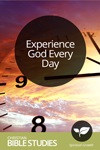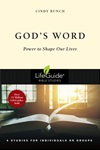It has become fashionable these days for churches to preach "disciple making." Everyone is for it. Everyone claims it as a priority. The words, however, often exceed the reality.
A tragic personal experience made the need for disciple-making a passion with me.
Several of my relatives attend the same church and had been trying for years to get my aunt involved. After much patient influence, she and her husband finally agreed to attend.
Following a couple of visits, the church leaders began sending people to their home each week on evangelistic visits. My aunt and her husband were impressed with people's concern; eventually they made decisions to follow Christ and to become church members.
The tragedy: never again did anyone from the church contact them about spiritual things. As a result, they dropped out within a couple of years because they felt ignored. From their perspective, the church was concerned only with adding two more names to the membership rolls.
Churches cannot assume the job is done once someone makes a "decision" for Christ. We must fully incorporate each individual into the life of the church. And that job never ends.
In fact, author Lyle Schaller goes so far as to say, "It is un-Christian for a congregation to seek new members unless it is also willing and able to accept them into that called-out community."
Most Christians would agree with the need to help people grow into spiritual maturity. The question is how?
At West Valley Christian Church, we discovered an approach that has been amazingly effective, an approach that uses as its launching point an unlikely method: a study of Bible history.
Of course, the subject matter is merely the focus around which we gather. The other elements vital to making disciples—prayer, natural relationships with more mature Christians, the opportunity to ask practical questions, and the chance for new believers to share their own growing faith—are all part of the experience.
It began a few years ago when our staff, under the direction of Minister Glenn Kirby, began sensing that people didn't know Bible history. In Sunday school, references to the Babylonian exile brought blank stares. In sermons, mentioning the judges or Paul's imprisonment left people puzzled. We realized people couldn't fully understand any Bible text if they didn't know the historical settings.
Our strategy? A nine-month overview of Bible history for our adult Sunday school classes. We wrote our own curriculum, and the results surprised us. During those nine months, we gained 60 people in our Sunday school (we'd averaged 150 to that point), and after the class our people understood the basic story line of the Bible from Creation to the spread of the church.
But a new problem quickly arose. What do we do with newcomers? How do we provide them with this same solid foundation? Someone suggested we adapt the overview for one-on-one Bible study and use it for disciple making.
It worked. Led by Glenn Kirby's initiative and creativity, we put together a 61-page workbook, complete with maps and charts, to be taught in eight 1 1/2-hour lessons. The workbook and the Bible would be the only tools necessary.
Next, we recruited people capable of teaching the material—not to a whole class, but to one or two others in their living rooms. Of those who'd completed the Sunday school class, 50 happily offered to pass along what they'd learned.
Many invited friends or neighbors to spend eight weekly sessions getting an overview of the Bible. If they couldn't find someone on their own, we introduced them to recent visitors to the church or others who wanted to brush up on the Bible.
Marty and Diane Young studied with the Lazenbys, a couple who had visited the church several times. The "eight-week" study began in January, but it was still going strong in June. Keith and Lynda Lazenby accepted Christ and were baptized during the time they were studying with the Youngs.
"We've found we've drawn closer not only to the Lord but also to each other," says Diane Young. "As Keith and Lynda learn more about God's will, they've become more active in church. Lynda now sings in the choir and comes with me to Thursday morning Bible study. My husband, Marty, baptized the entire family, and that was a special joy. After our overview study is complete, I pray that our friendship with Keith and Lynda will continue."
Rod and Rita White have also found the overview an effective tool in reaching non-Christians.
"We've had five separate studies with couples," says Rod, "and from four of them we've had conversions and baptisms. The overview gives people the understanding to make their own personal covenant with Christ."
One of the couples touched by the Whites was Bob and Bonny Setser.
"When Bonny and I came to West Valley," says Bob, "the Holy Spirit had just begun to make us aware of our spiritual needs. Bonny came from a totally nonreligious home, and I'd turned away from the church in my late teens. But we both felt a void in our lives and wondered if the Lord could fill it.
"After a few visits, Glenn Kirby asked us if we'd like to do an overview study of the Bible with another couple as teachers. We agreed, and that's how we met Rod and Rita. Over the next several months, as the historical panorama of God's plan was explained, the combination of the Holy Spirit's work and Rod and Rita's guidance and testimony convinced Bonny and me that we were on the right track. Before we completed the study, we asked Jesus into our lives and were baptized."
Now the cycle has been completed as the Setsers have become teachers of the overview, and their first students, the Paladinos, have also joined the church.
The actual format of each session is up to the individual teacher. Usually the people take turns reading a portion of Scripture, discuss its content, and answer the questions in the workbook.
Sometimes a student may feel lost or be very shy—and the teacher must do all the talking. Other times a student can't read well, and the teacher must do all the reading from Scripture. But most sessions are a free-flowing discussion with plenty of time for personal questions. Ideally everyone has done the workbook lesson ahead of time, allowing more time for personal application and questions. If students really want to dig into the Word, the sessions may go for several hours—and the study for several months.
Many students have in-depth theories concerning Creation, the Flood, the tower of Babel, or prophecy. We don't try to put down their theories, but we do try to teach the Scriptures simply. Some discover that their theories really don't matter—what matters is the message clearly recorded in Scripture.
But in addition to understanding Bible history, the student is developing a personal relationship with an experienced Christian. Some of these relationships are the strongest in the church.
Currently we have 33 separate studies in progress with 46 students involved, and another church is teaching this course in an adult Sunday school class. In the past year, our Sunday school has grown 15 percent.
The benefits of this ministry are many:
- More and more people gain experience teaching.
- New teachers overcome their fears because they're already familiar with the material and they simply follow the workbook.
- Teachers demonstrate Bible study methods and model the Christian life—two keys to discipleship.
- Close relationships are developed, which build a bridge to establish students in Sunday school and worship services.
But by far the most important benefit we've experienced is the excitement among our members when they see friends accept Christ. Not only does it make them want to keep teaching, but it helps the church actually do what everyone talks about—make disciples.
Copyright © 1982, 1983, 1984 Christianity Today. Originally printed in Fresh Ideas for Discipleship & Nurture, copyright 2005.










